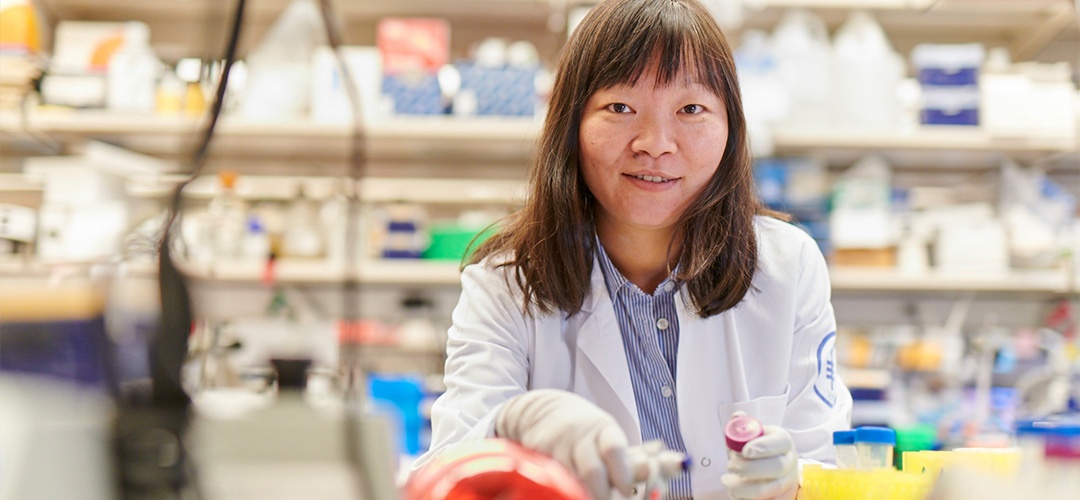How MSK is Outsmarting Sarcoma
Q & A with Ping Chi, MSK Physician-Scientist
Why is sarcoma research and treatment so critical?
Each year, some 15,000 people in the U.S. are diagnosed with sarcomas. And they have a dire need for more effective treatment options. Sarcomas are cancers of the connective tissue — they are rare, complicated, and come in more than 50 different subtypes.
How is MSK approaching sarcoma and rare cancer research?
At MSK, we have the critical mass to delve deeply into the causes of sarcomas and other rare cancers. We are one of the few cancer centers worldwide with the core lab facilities, clinical expertise, patient population, and sarcoma research funding to explore these diseases. Some of the most important funding comes through philanthropy, and the work we’re doing now in sarcomas at MSK will have an enormous global impact.

What are you working on now that excites you?
I focus on two or three sarcoma sub-types, including gastrointestinal stromal tumors (GIST). We can treat GIST with Gleevec, but most patients eventually develop resistance to treatment. This happens in cancer. New pathway alterations (genetic and epigenetic) constantly develop — which is why we need to find ways to outsmart them.
We’re addressing some pathway changes by running a combination trial for GIST patients. We use Gleevec as the frontline therapy, but we’re combining it with an inhibitor drug that is designed to prevent or delay the resistance to Gleevec. We are also running additional trials for GIST patients who already developed resistance to Gleevec.
How can you determine when patients are about to become resistant to their treatments?
We are investigating the entire spectrum of resistance. We have a new tool, liquid biopsy, and we’re optimizing it at MSK. Liquid biopsies are minimally invasive clinical tests that allow us to see the mutations that drive cancer earlier and new mutations that develop with treatment. This will allow us to assess and adjust treatment in real time. It’s an amazing step forward in getting patients the care they need as soon as they need it.
How has philanthropic support been a key factor in dedicating funds to sarcomas and other rare cancers?
Cycle for Survival is the movement to beat rare cancers, started in 2007 by Jennifer Goodman Linn. She was treated for sarcoma at MSK. Jennifer understood from her own experience that rare cancers receive less research money than more commonly diagnosed forms. She was determined to become a force for change.
100% of the money raised goes directly to rare cancer research at MSK. While we lost Jennifer to cancer in 2011, Cycle for Survival has become a national phenomenon, raising almost $180 million – and over $38 million in 2018 alone.
We are also supported by individual donations, philanthropy foundations and GIST advocacy groups.
In one word, what do donors support?
Donors support the time my lab needs to explore the best avenues to advance care. And time is what we want to give cancer patients everywhere. They cannot wait, and neither should we.
Make an impact on research at MSK DONATE NOW